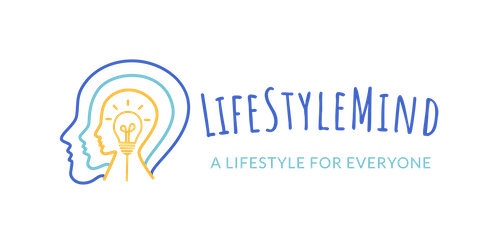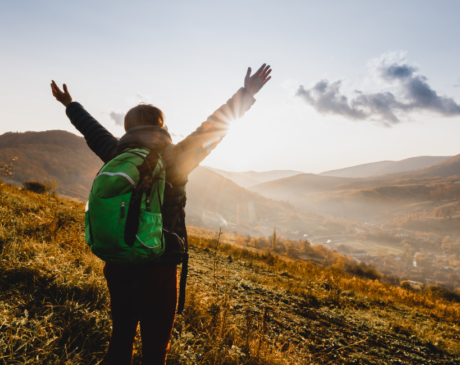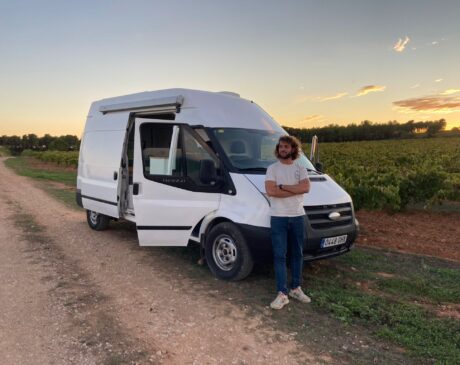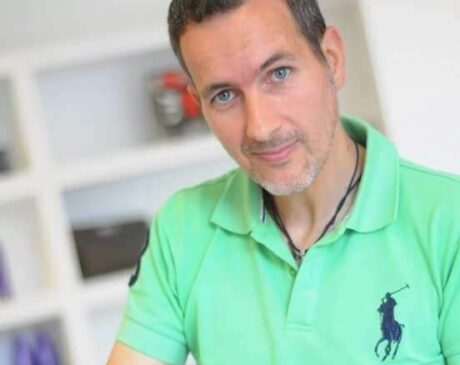Francesco Miressi: A Solo Backpacker’s 4-Month Journey
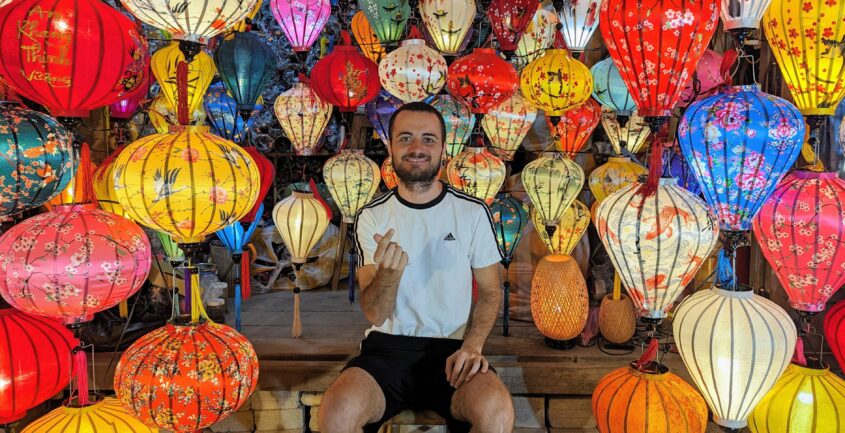
In today’s interview, we meet Francesco Miressi, an adventurous traveler who embarked on a four-month journey as a solo backpacker. Francesco’s story is not just about exploring different countries; it’s about a personal quest for freedom, growth, and sustainability.
He opens up about his reasons for leaving behind the conventional routine, his encounters along the way, and how his travels have helped shape his outlook on life. Let’s dive into his inspiring journey, where he navigates not only new landscapes but also deeper aspects of himself.
Francesco Miressi’s Solo Backpacker Interview
Hi Francesco! First of all tell us a little bit about you!
Hi everyone! I’m Francesco, born in July 1987. I grew up in Milan and its province, with roots from both my parents in Puglia. I studied computer science and graduated from the University of Milan.
I started my career as a programmer but later transitioned into sales. Currently, I work for a small consulting firm (I steer clear of the Big Four 🙂) that partners with Google Cloud, Salesforce, LumApps, and Monday.com.
What motivated you to go on a solo backpacking trip for four months?
I’ve always wanted to take a longer trip than the usual 2-3 weeks of summer or Christmas vacations. I had set my threshold at forty because I saw it as an age when, regardless of whether I became a parent or not, life would already be on track.
Taking a break wouldn’t negatively impact my career or personal relationships. But then life happens while you’re busy making plans.
Between August 2021 and June 2023, I lost both my parents to cancer—first my father to pancreatic cancer, then my mother to lung cancer. Their deaths hit me hard with a harsh reality: the time we have is much less than we think.
We know this, but we live in a society that convinces us money comes first because it buys you freedom. But often, freedom and a bank account don’t go hand in hand.
I started listening to myself, both during evening meditation and with my therapist. I realized that the time to take this journey had arrived.
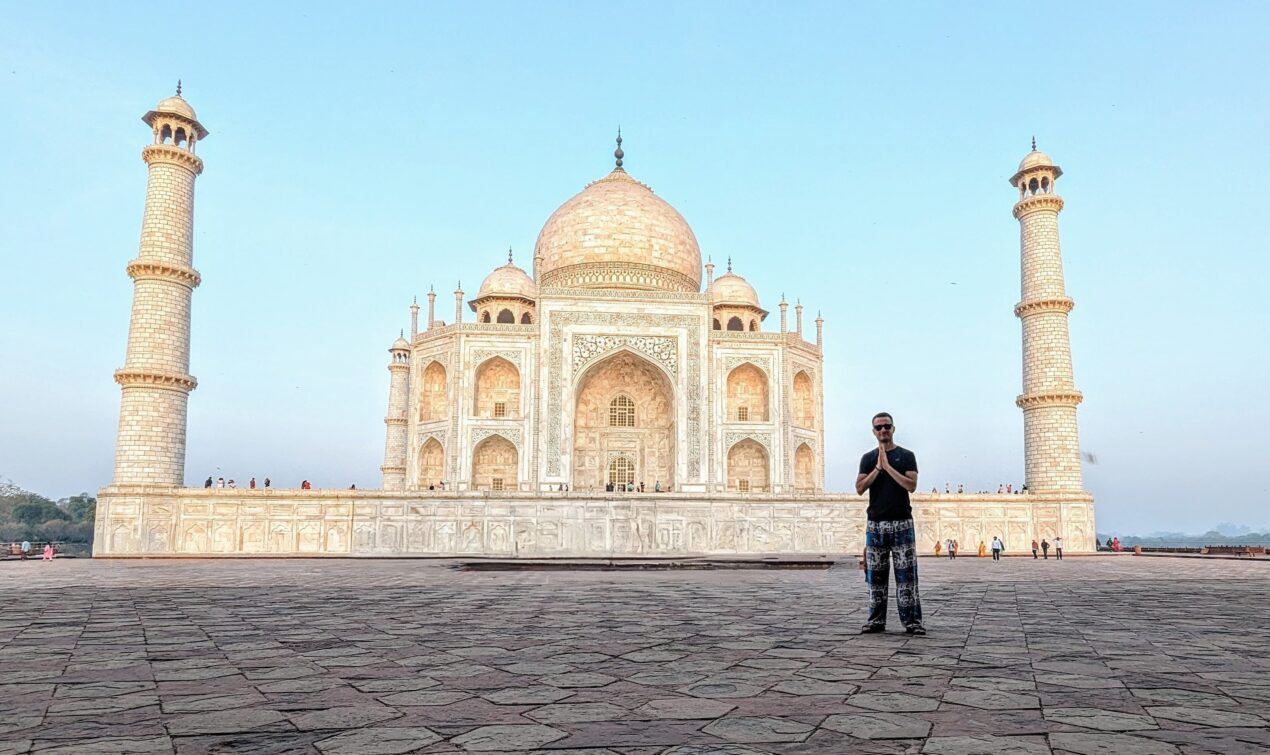
How did you organize this solo backpacker trip? Was it difficult to plan everything?
Since I started working, I’ve always traveled. I organized a few on-the-road trips in Europe (e.g., from Milan to Budapest, passing through Munich, Vienna, Hallstatt, Bratislava) and other short solo trips (Belgium, UAE, Zanzibar).
So from a “logistical” point of view, it wasn’t complex to organize this partial world tour. The biggest obstacle was overcoming some limiting beliefs that we all have: “How will I manage work?”, “What about my company?”, “What if my sister or nephew needs me?” etc.
To overcome these purely mental blocks, I joined a community of travelers from all walks of life, social and economic statuses. That’s how I realized I wasn’t much different from the many people who make these choices, regardless of whether they lead to a radical life change.
So, I bought my one-way ticket for the first leg of my trip.
How did you choose your travel stops? Was there any specific criterion you followed?
For a hobby, I’ve been a group travel tour leader for a few years. My 4-month sabbatical started in Thailand with a group trip. After this stop, my solo journey began (although, when traveling alone, you rarely stay alone as you meet many people).
After Thailand, I went to Cambodia because I had dreamt of seeing Angkor Wat since the days of Tomb Raider. Vietnam wasn’t in the original plans, but I was drawn to it.
After these Southeast Asian countries, I spent a month in India, spending the first two weeks in Uttar Pradesh, mainly in spiritual cities (Lucknow, which has an Islamic influence; Bodhgaya, Buddhist; and Varanasi, Hindu).
As an atheist, approaching Buddhism as a life philosophy (a religion without religion) led me to lesser-known destinations, where I connected with my inner self.
The second half of March was spent exploring Rajasthan and the Taj Mahal, a true wonder, before celebrating Holi in Vrindavan.
A flight from Delhi to Tokyo took me to Japan for 35 days. I immediately loved Japan for its people’s kindness, cleanliness, safety, and respect for nature. I admired the sakura blossoms in Kanazawa, participated in tea ceremonies, took a calligraphy class, and even learned some samurai art.
I crossed Kyoto’s bamboo forest at dawn, visited Mount Fuji, and much more before heading to my last stop, which was unlike the rest of the trip: remote Australia.
From the Gold Coast, where I met a dear friend, to Melbourne, the Great Ocean Road, Sydney, Jervis Bay, and finally, the outback at the sacred site of Uluru, home to the world’s oldest population—the Aboriginal people.
Which country impacted or left the strongest impression on you during your trip, and why?
Japan had the strongest impact on me. The combination of its people, culture, and nature, along with personal experiences like witnessing sakura season, practicing traditional arts, and traveling through both rural and urban areas, connected me deeply with the country.
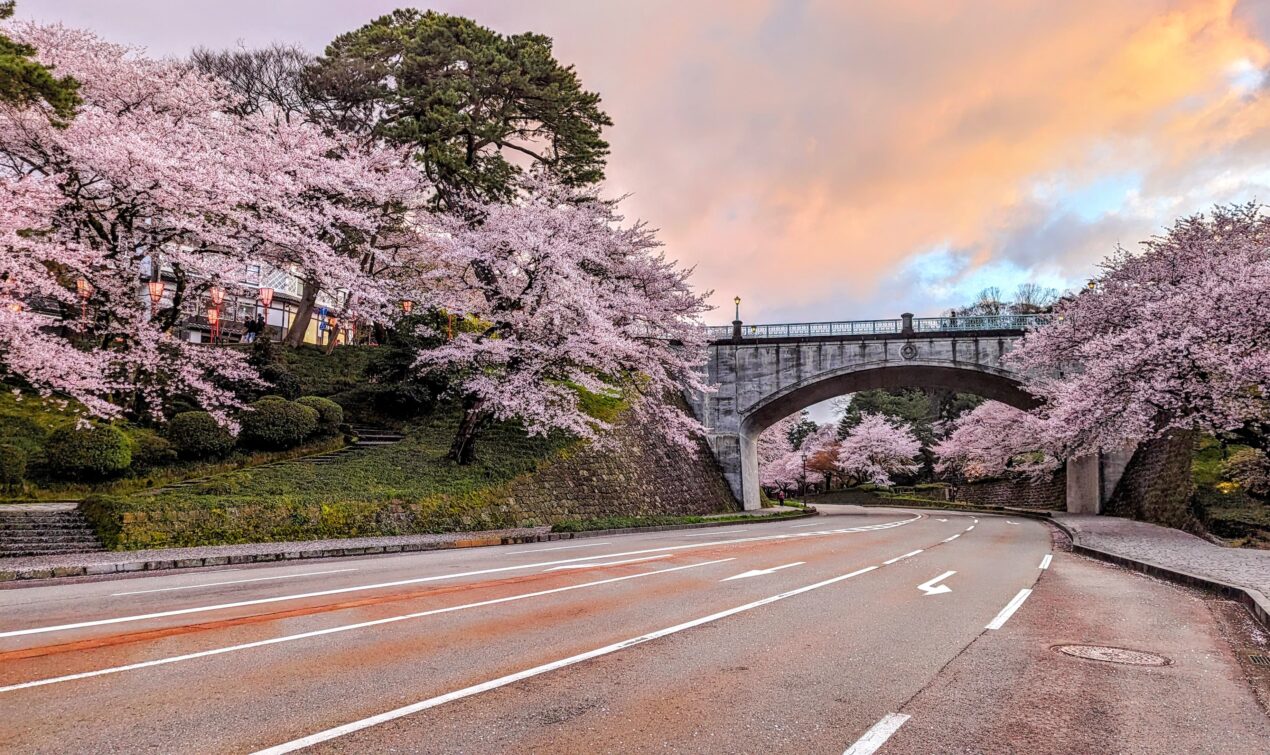
In addition to being a traveler, we know you follow a sustainable diet. What led you to adopt this lifestyle, and what does your diet consist of?
I began considering switching to a plant-based diet for two reasons. One is ethical: we’re all victims of cognitive dissonance, and it’s hard to associate a steak with a dead animal. Through my closer relationship with Buddhism,
I’ve understood better that animal suffering is no less noble than human suffering, and after witnessing suffering for two years, I want to minimize the harm caused by my presence on Earth.
The second reason is for health and environmental impact: more and more studies scientifically confirm that animals are merely intermediaries for protein, and meat, both red and white, should be consumed in almost negligible quantities.
So it makes sense to go directly to the source—eating legumes, vegetables, fruits, and grains. Not to mention that intensive meat production, aside from pollution, leads to sedentary lifestyles for animals, eating low-quality food rich in antibiotics, and living in confined spaces.
In conclusion, I define myself as a flexitarian, almost vegan (I haven’t yet removed eggs from my diet). During my four-month trip, for over 100 days, I followed a plant-based diet.
Only in Japan did I eat sushi once—in Tokyo, at a Michelin-star restaurant—and had meat just once—in Takayama, the wagyu from Hida, rated A5.
During your trip, did you experience moments that helped you reflect on yourself or helped you grow personally?
I think the entire trip was one big moment of growth. There were some particularly touching experiences, like visiting one of the slums in Delhi impacted by fast fashion, thanks to an NGO.
Or in Cambodia, visiting one of the Khmer Rouge prisons, which exterminated 25% of the Cambodian population during the late 1970s genocide.
What I carry with me differently from before this trip is a more short-term view of life. Until I was 35, I lived by setting increasingly challenging goals, following tracks, and speeding along year after year.
This journey taught me to focus more on the present, to be ready to change plans (as I did by adding Vietnam to the trip by instinct). Have goals, but try to reach them with serenity, without rushing, enjoying the journey, not just the destination (if it’s reached).
What does freedom mean to you when you travel? Do you think this trip brought you closer to a more spiritual dimension of life?
Freedom, when I travel, means immersing myself in the local culture, understanding the history, connecting with people, eating local food, and breaking down any prejudices. Freedom means being able to change plans based on events, your mood, the weather, and the people you meet.
It means slowing down in this society that constantly pushes us to perform and rush. And slowing down leads to a more spiritual dimension because it means carving out time for yourself, not in a selfish way.
The consequence is a deeper connection with yourself, in the here and now. And by connecting with your inner self, you connect with the rest of the universe (it’s no coincidence that the Beatles recorded Across the Universe in Rishikesh, India).
You understand that you’re just like everyone else. And, like the Japanese do with zen gardens, you try to take care of yourself and what’s around you.
Traveling sustainably, have you noticed a connection between respect for the environment and inner well-being?
Going back to the zen garden point.
I’ve contemplated several of them in Japan, and it’s incredible how observing rocks, lines in the sand, and perfectly tended plants creates inner calm. Zen gardens are the embodiment of how respect for the environment connects you to frequencies that generate well-being.
I felt the same sensations this summer among the Norwegian fjords of the Lofoten Islands: a still sea nestled between mountains, crystal-clear water, small imperceptible waves that create a holistic mental state.
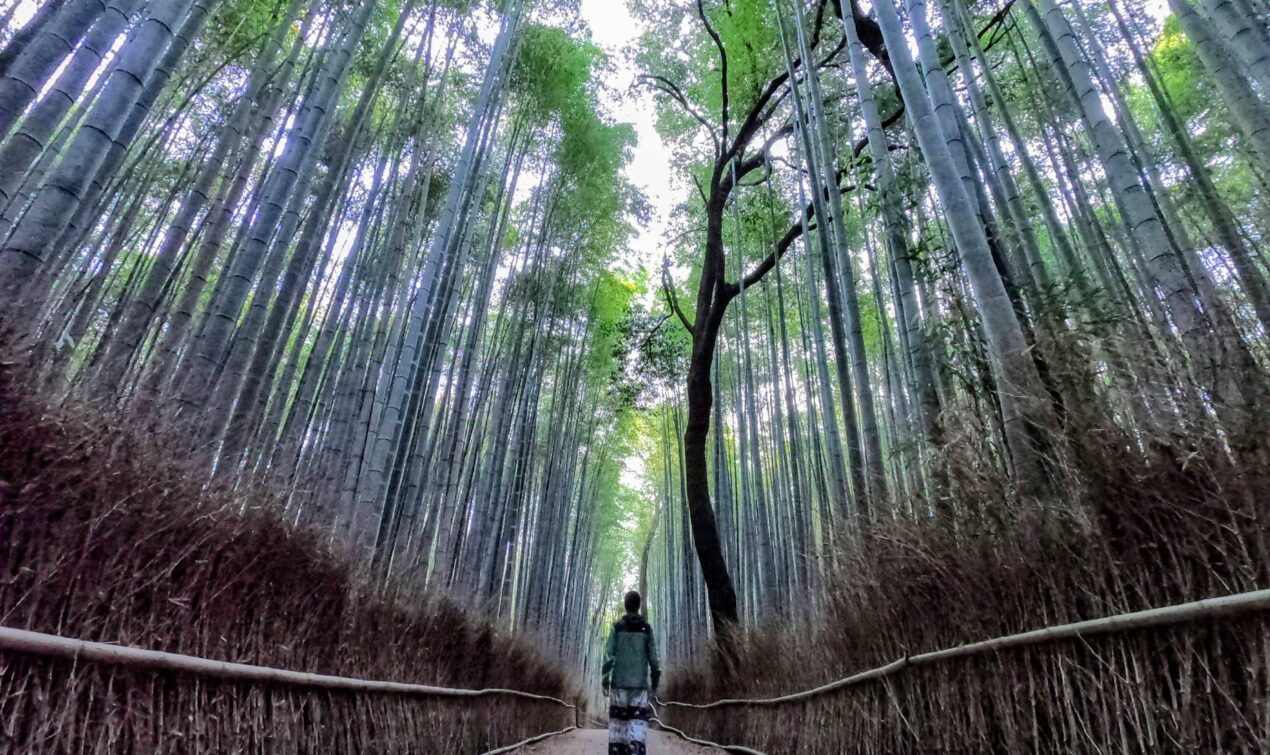
What practices did you adopt during the trip to stay sustainable, both environmentally and personally? How do you think these choices enriched your experience?
I didn’t adopt any particular practices. I tried to prioritize public transport as much as possible (even in Milan, I walk or use the metro). In Japan, it was incredibly easy: everything works.
Only in India, for the first half of the trip, did I use a private driver since I reached remote and poorly connected destinations. In Australia, internal flights were inevitable due to the huge distances.
Do you have any suggestions or advice for those considering embarking on a similar journey?
First, I want to thank those who took the time to read about my experience. Traveling is one of the most beautiful things we can do in life; it opens the mind. Make a list of three, five, or ten places you’d like to visit.
And go. Alone, with the person you love, with strangers, with your parents, siblings, or best friends.
But I also speak to those who might not have this passion or the financial means.
STOP. SLOW DOWN.
Even in everyday life, even though it’s difficult.
We don’t always have to be productive.
We don’t always have to be available.
We need to take time for ourselves.
Time to listen to ourselves. To feel better.
To rediscover that passion we’ve set aside because it wasn’t a priority.
Or simply stop to rest.
It’s not shameful. It’s necessary.
A hug,
Francesco
Thank You, Francesco!
Thank you, Francesco, for sharing your incredible journey and your thoughts on sustainability, freedom, and personal growth. Your story is a true inspiration to those of us seeking to explore both the outer world and our inner selves.
To follow more of Francesco’s adventures as solo backpacker, make sure to check him out on Instagram: @francesco.miressi.
